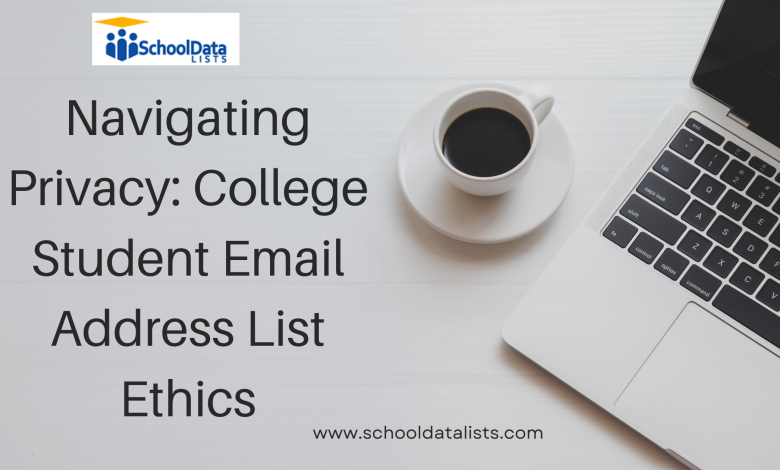Navigating Privacy: College Student Email Address List Ethics
College Student Email Address List

Introduction
In the digital age, privacy has become a paramount concern, especially for college students who find themselves at the crossroads of academia and technology. One particular aspect that demands careful consideration is the use and management of College Student Email Address List. While these lists serve various legitimate purposes, ethical concerns loom large. This article delves into the intricacies of navigating privacy when it comes to college student email addresses, shedding light on ethical practices and the importance of safeguarding personal information.
Understanding the Landscape
The Significance of College Student Email Lists
College student email lists are invaluable tools for communication within academic institutions. Professors use them to share important course updates, administrators employ them for official announcements, and student organizations leverage them to connect with their members. The efficiency and immediacy of email communication make these lists indispensable for fostering a sense of community and disseminating information effectively.
Ethical Concerns Arising from Email Marketing
However, the same convenience that makes email lists a powerful communication tool also raises ethical red flags. The proliferation of email marketing campaigns, both within and outside educational institutions, has led to concerns about the privacy and security of individuals. Students, in particular, can find their inboxes inundated with unsolicited messages, raising questions about how their email addresses are obtained and used.
Ethical Considerations in Email List Management
Consent and Transparency
One of the primary ethical considerations in managing college student email lists is obtaining consent. Educational institutions must be transparent about how students’ email addresses will be used and seek their permission before adding them to any distribution lists. Consent ensures that students are aware of the intended use of their personal information and have the autonomy to decide whether they want to be part of such communication channels.
Limited Use and Data Security
Moreover, ethical email list management involves limiting the use of student email addresses to relevant and legitimate purposes. Educational institutions should have robust data security measures in place to safeguard these lists from unauthorized access. By implementing encryption and other security protocols, colleges can mitigate the risks associated with potential data breaches, respecting the privacy of their students.
Opt-Out Mechanisms
An essential aspect of ethical email list management is providing students with clear and accessible opt-out mechanisms. Individuals should have the right to unsubscribe from email lists at any time, without facing any repercussions. This not only respects their autonomy but also ensures that the communication remains consensual and aligned with ethical standards.
The Impact of Ethical Practices
Fostering Trust and Respect
Embracing ethical practices in the management of College Student Email Address List goes beyond mere compliance with regulations; it fosters trust and respect. When students feel that their privacy is valued and protected, they are more likely to engage positively with the academic community. This trust forms the foundation of a healthy and transparent communication environment within educational institutions.
Strengthening Institutional Reputation
Furthermore, upholding ethical standards in email list management contributes to the overall reputation of educational institutions. In an era where data breaches and privacy concerns make headlines, institutions that prioritize and safeguard the personal information of their students stand out as responsible and trustworthy. This not only attracts prospective students but also instills confidence in current ones.
Best Practices for Ethical Email List Management
Regular Audits and Updates
To ensure ongoing ethical College Student Email Address List management, educational institutions should conduct regular audits of their distribution lists. Removing inactive or outdated email addresses not only enhances the efficiency of communication but also reduces the risk of data misuse. Keeping contact information up-to-date is a fundamental step in respecting the privacy of students.
Education on Privacy Awareness
Educational institutions should also prioritize educating students about privacy awareness. By raising awareness about the potential risks associated with sharing personal information, colleges empower students to make informed decisions about their online presence. Workshops, seminars, and informational campaigns can play a crucial role in enhancing privacy literacy among the student population.
Conclusion
In the intricate landscape of email communication within educational institutions, navigating privacy requires a delicate balance between efficiency and ethical considerations. College Student Email Address List, while essential for fostering communication, demand responsible management to ensure the privacy and consent of individuals. By prioritizing transparency, data security, and ethical practices, educational institutions can not only navigate privacy effectively but also contribute to a positive and respectful online environment for their students.




